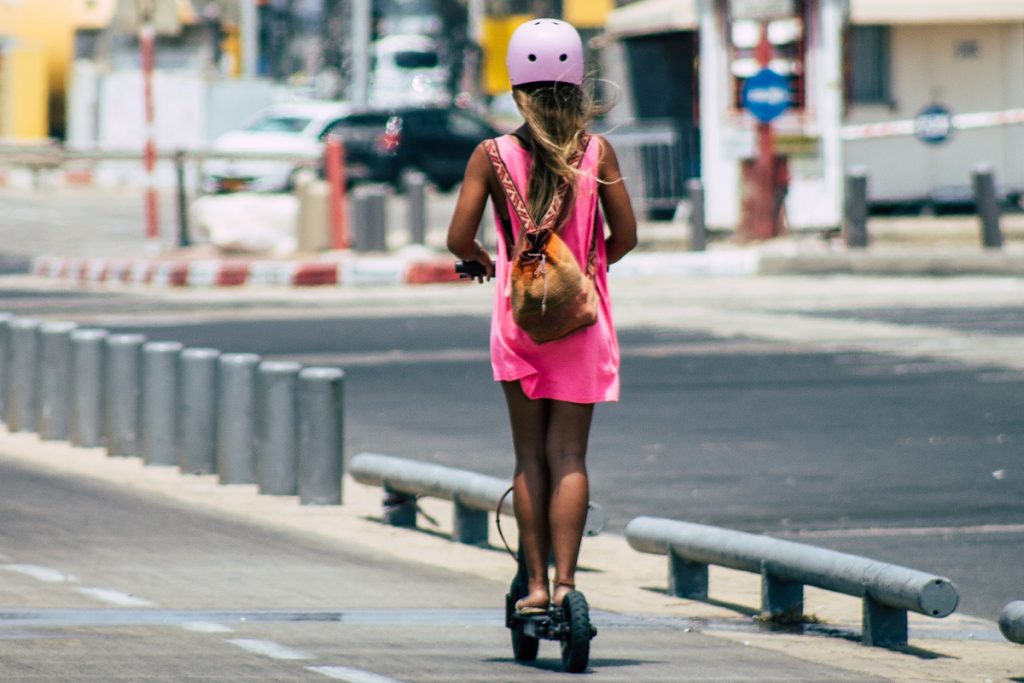The Tel Aviv-Jaffa municipality has issued a series of unprecedented new regulations for shared electric scooter companies, which aim to keep riders and pedestrians safe.
These regulations, which the municipality says are the first of their kind in the world, include equipping electric scooters with helmets, installing license plates, recycling used batteries, lowering the speed of the scooters in certain areas, and preventing the usage of scooters in restricted areas.
The regulations, which will be enforced by the city, are meant to set an example for other municipalities around the world who are dealing with similar circumstances, the municipality said in a statement.
The municipality has already issued strict restrictions requiring riders to use their scooters as a speed limit of 15km/h. Scooters and bikes are also banned from sidewalks and riders face fines for endangering pedestrians and being on their phones.
“Our main goal is to keep sidewalks as a safe space for walking, as the city’s sidewalks are designed primarily for pedestrians. Tel Aviv is a very walkable city and we encourage people to take advantage of the city’s small size, flat topography and over 300 days of sunshine a year,” Meital Lehavi, deputy mayor of transportation for Tel Aviv-Yafo said.
The crackdown on electric scooters followed a number of severe injuries and even deaths involving shared scooters and bikes, and complaints by residents feeling endangered on sidewalks.
Tel Aviv introduced shared scooters almost two years ago and a number of international providers operate in the city including Lime, Bird, and Wind.
According to micro-mobility company Lime, Tel Aviv is already one of its top-performing markets.
The municipality embarked on a pilot program in August to regulate companies that were renting out electric scooters in the city. These companies had been subjected to a number of conditions and restrictions in order to obtain a permit to operate in the city, the municipality said.
These companies had to follow a number of conditions and restrictions in order to obtain a permit to operate in the city, which included ensuring availability throughout the city, limiting the maximum number of scooters per company to 2,500 units, allowing parking only in designated areas which have to be marked in the companies’ apps, preventing usage by minors, implementing and activating a service call center, and banning the scooters’ alarms during the nighttime.
The municipality said it will continue with this pilot in 2020, adding additional terms and restrictions with the purpose of increasing road safety. in the future.
Related posts

Israeli AI Safety Tool Among TIME’S Best Inventions For 2024

Editors’ & Readers’ Choice: 10 Favorite NoCamels Articles

TAU Team Discovers Mechanism To Eliminate Cancerous Tumors




Facebook comments